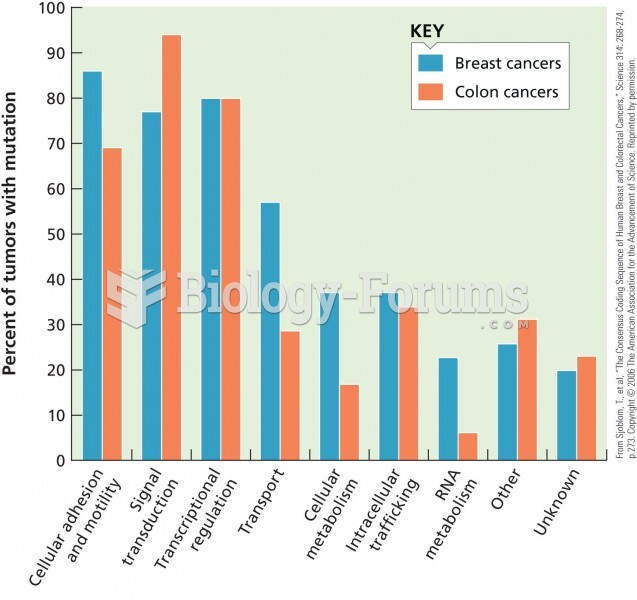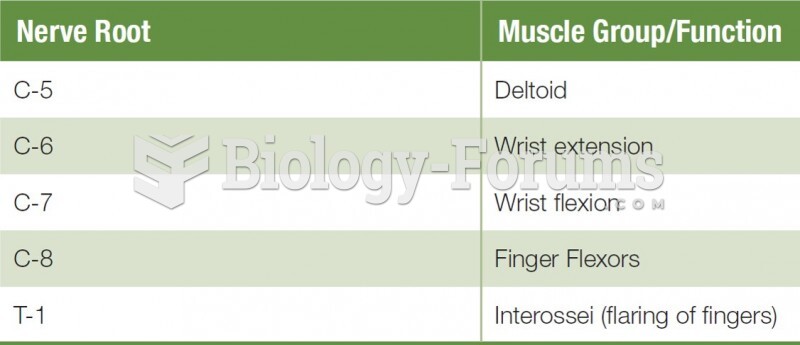|
|
|
The oldest recorded age was 122. Madame Jeanne Calment was born in France in 1875 and died in 1997. She was a vegetarian and loved olive oil, port wine, and chocolate.
Egg cells are about the size of a grain of sand. They are formed inside of a female's ovaries before she is even born.
If you could remove all of your skin, it would weigh up to 5 pounds.
Every 10 seconds, a person in the United States goes to the emergency room complaining of head pain. About 1.2 million visits are for acute migraine attacks.
About 80% of major fungal systemic infections are due to Candida albicans. Another form, Candida peritonitis, occurs most often in postoperative patients. A rare disease, Candida meningitis, may follow leukemia, kidney transplant, other immunosuppressed factors, or when suffering from Candida septicemia.
 Breast cancer. Notice the tumor growing within a lactiferous gland, which occurs in infiltrating duc
Breast cancer. Notice the tumor growing within a lactiferous gland, which occurs in infiltrating duc
 Flo Hyman was a 6 foot 5 inch star on the U.S. women’s volleyball team that won a silver medal in ...
Flo Hyman was a 6 foot 5 inch star on the U.S. women’s volleyball team that won a silver medal in ...





